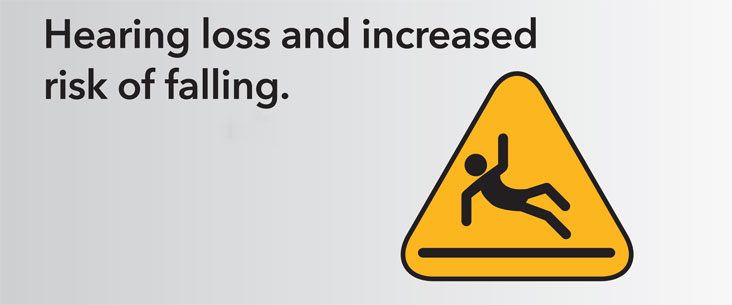
Johns Hopkins School of Medicine along with the National Institute of Aging studied the relationship between hearing loss and falls. They studied 2071 subjects aged 40-69. They found that hearing loss increases the chances of falls quite significantly. The research study also indicates the more severe the hearing loss, the higher the chance of falls. They concluded that for every 10 dB of hearing loss, the risk of falls increases by 140%. This finding held true regardless of other factors such as age, sex, race, vestibular function, or cardiovascular disease.
There could be numerous reasons as to this correlation but one of the most prominent ones is that people with hearing loss are not always aware of their environmental surroundings. In other words, various levels of hearing loss lead to a decrease in auditory cues, which are required for environmental awareness. Cognitive overload also plays a substantial role in the increased amount of falls. It takes a tremendous amount of concentration to maintain balance. Research indicates that when people are focused on trying to hear, their focus shifts and thus do not focus on maintaining their balance.
